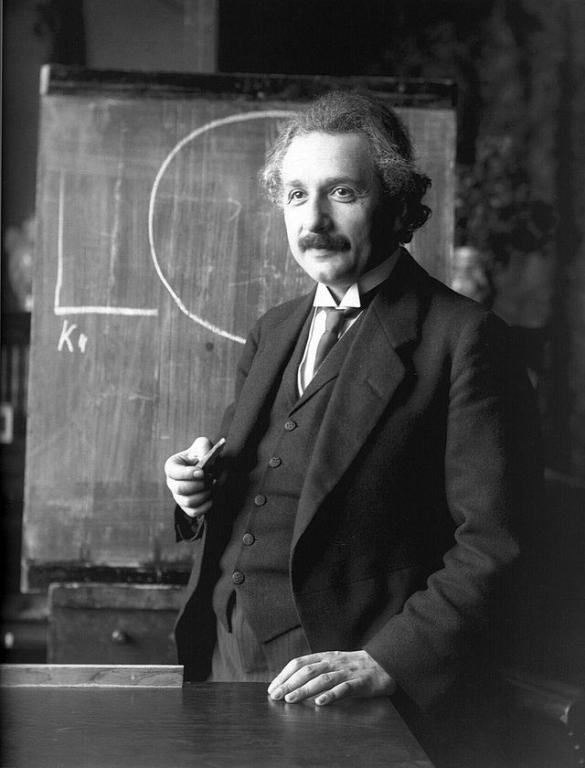
Curiously, as someone who hates and fears science and who neither knows nor wants to know anything of the subject, I enjoy reading about it. I typically have about fifteen to twenty books going at a time — by no means all of them about science, of course — and I often fail to finish one book because it becomes buried under new books. (I’m trying to reform myself on that score.) Lately, every few days, I’ve been reading a few pages in Amir D. Aczel, God’s Equation: Einstein, Relativity, and the Expanding Universe (New York and London: Four Walls Eight Windows, 1999). Here are a couple of items from it, the first of which refers to Albert Einstein’s brief stint as a professor at the German University of Prague:
The office Einstein was assigned at the university overlooked what seemed a beautiful, manicured green park. Looking through his window, deep in thought about the problems of gravity, Einstein couldn’t fail to notice that in the morning only women walked in the park, while in the afternoon it was only men. Perplexed by this observation, Einstein asked people what was going on in the park below. He was told that this was no park — these were the grounds of a mental institution. Later he would joke with colleagues about the people in the park, saying that they were the mad people who would not occupy themselves with quantum theory. (Einstein had a life-long battle with the quantum theory. In reference to the quantum theory, with its probabilistic nature, Einstein would later make his famous statement: “I shall never believe that God plays dice with the world.” (38-39)
Another famous bon mot from Einstein is his declaration Raffiniert ist der Herr Gott, aber boshaft ist er nicht.
The saying is chiseled in stone over a fireplace in the common room of the mathematics department at Princeton University — a testimony to the enduring nature of the special theory of relativity. (25)
It’s usually translated as something along the lines of “Subtle is the Lord, but malicious He is not.” Aczel is correct in arguing (at 13, note 1) that it can also, and perhaps should, be rendered “Tricky [crafty, shrewd] is the Lord God, but malicious he is not.” Aczel thinks the difference highly important. I confess that, at least at the moment, I don’t.
***
I frequently hear that scientists — real scientists — believe only what they can demonstrate to be true, and that, accordingly, non-scientists should follow their lead. Just the facts, ma’am.
This is a bit of an oversimplification.
Take, for example, the matter of gravitational lensing, in which light from a very distant object (e.g., a star or galaxy), can be bent by gravity and even magnified as it passes by a massive object located between the more distant object and an observer — e.g., an astronomer on Earth. Einstein evidently entered this thought into a notebook that he kept during a visit to the Royal Observatory of Berlin during April 1912. However, he seems to have forgotten the idea, because he first wrote it up in a 1936 paper submitted to the journal Science — and seems to have derived it anew, all over again. In any event, it was only 1979 that gravitational lensing, predicted by Einstein, was actually observed (amid considerable excitement) by astronomers. That was forty-three years after his paper was published, and sixty-seven years after he first had the thought. (See Aczel’s discussion on pages 37-38.)












